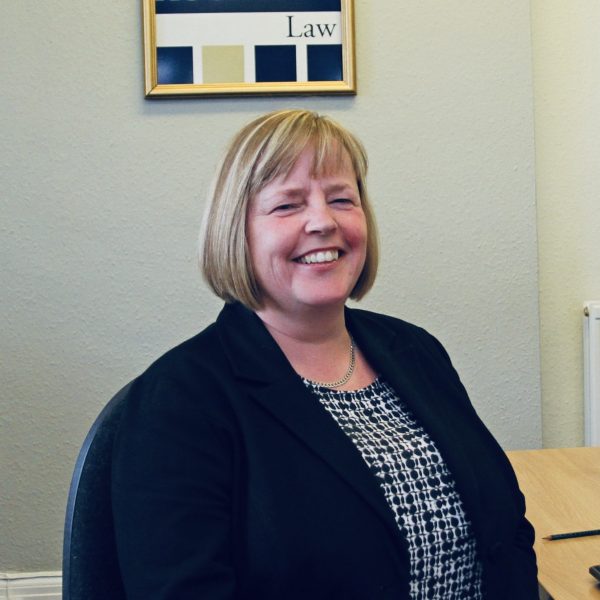Divorce & Dissolution of Civil Partnership
Chester and North Wales
FREQUENTLY ASKED QUESTIONS
HOW LONG DOES A DIVORCE/DISSOLUTION OF CIVIL PARTNERSHIP TAKE?
In April 2022 the law changed and that the only ground for divorce now is that the marriage has broken down irretrievably and it is on the basis of ‘no fault’. The new procedure now takes a minimum of 26 weeks.
HOW MUCH DOES A DIVORCE COST?
Allington Hughes offer fixes fee rates for the Applicant in divorce or dissolution of civil partnership proceedings. As the Applicant, there is more work to be done and a Court fee to pay. We offer a fixed fee of £750 plus VAT at 20% (£150) to represent you as Applicant plus the Court fee which is currently £593. You may be eligible for a full or part remission on the Court issue fee.
ARE DIVORCE RECORDS PUBLIC?
The only public document is the Final Order (formerly known as Decree Absolute).
WHAT IS A CONDITIONAL ORDER/FINAL ORDER?
Upon the filing of the divorce application you cannot apply for Conditional Order until 20 weeks.
The Conditional Order and Final Order are key stages in a divorce.
The Conditional Order is the first stage and a pronouncement by the court that the person seeking a divorce or dissolution is entitled to one. It is not of public record. Following the pronouncement of the Conditional Order, there is a mandatory waiting time of 6 weeks and 1 day before the Applicant can ask the court to formally dissolve the marriage or civil partnership. There is opportunity in this time for representations to be made as to why the marriage or civil partnership should not be dissolved, however this is rare.
Upon receipt of the application, the court will pronounce the Final Order which is the final stage officially dissolving the marriage or civil partnership. The Final Order is of public record.
In England and Wales, the pronouncement of the Final Order does not end the financial claims that arise on divorce or dissolution. It is important that a clean break order is applied for to prevent any future financial claims.
HOW DO I FILE FOR DIVORCE?
A petition for divorce must be presented to the court and the court fee paid. The petition can be presented online on the Government website.
WHAT ARE THE STEPS TO A DIVORCE?
The first stage is a petition for divorce is presented to the court by one party in the relationship. Once this has been presented to the court, they will send it to the other party (known as the ‘Respondent’) for them to acknowledge. The Respondent should acknowledge receipt within 7 days, However the reality is that this can take longer. Once the court is satisfied that effective service of the paperwork has taken place the Applicant can apply to the court for the Conditional Order (whereby the Court announces the Applicant is entitled to a divorce) and thereafter the Final Order (the final stage announcing that the marriage or civil partnership is dissolved). In some circumstances, the Respondent can make those applications, however additional costs and fees may be incurred.
IS DIVORCE THE ONLY OPTION?
No, divorce isn’t the only option. Other routes include:
- Counselling (marriage or family counselling).
- A parenting agreement.
- Parenting classes.
- Anger management classes.
- Therapy for addiction.
- Separation on an informal basis supported by a separation agreement drafted by solicitors or formally through judicial separation.
- Entering into a post-nuptial agreement to formalise the financial arrangements between the parties which may make a party feel more financially secure in the relationship
WHAT AM I ENTITLED TO IN MY DIVORCE?
There is no presumption of a 50/50 division in England & Wales. The courts will look at a 50/50 split first and then consider if that is fair. In undertaking this exercise, the judge will have regard to various factors e.g. the welfare of any children, the parties’ income, earning capacity, property and other financial resources, their financial needs, obligations and responsibilities, the parties’ ages, length of the marriage, physical or mental disability etc.
If the matter is not before the court (e.g. the parties are trying to reach an agreement between them) the solicitors will undertake this exercise and try to negotiate an agreement on the above principles.
Financial claims arise in divorce proceedings and will depend upon the assets involved and can include property, spousal maintenance, lump sum and pension sharing orders. Full financial disclosure is required of both parties to advise further.
We do advise that you attempt mediation to see if you can reach an agreement without the need for formal Court proceedings.
We offer legal advice about family matters so if you have any concerns, please contact us so one of our experienced, sympathetic team can help put your mind at ease. Our team can help with the following:-
- Divorce
- Dissolution of civil partnership
- Financial matters on divorce and dissolution
- Pre and post nuptial agreements
- Separation agreements
- Co-habitation agreements
- Property disputes
- Children matters
- Financial claims for children
We often get asked many questions at the initial stage of a divorce or dissolution of civil partnership and we answer the most common ones here.

Ceri Jones
Director
Find out more

Gwenno Price-Jones
Director
Find out more

Lesley Clarke
Senior Associate
Find out more
Get in touch with Allington Hughes
For more information about our Divorce & Separation services
You may contact Allington Hughes with any legal queries or questions by calling or emailing our offices. We will endeavour to offer you straight forward advice from one of our fully qualified and experienced legal team.
Please note that e-mails are a non-secure method of communicating and we cannot guarantee that your e-mail will be received by us. We do have a filtering system in place, and would always recommend that if your e-mail is urgent, that you follow it up by telephone.
Wrexham 01978 291000 | Chester 01244 312166 | Llanrwst 01492 641222
